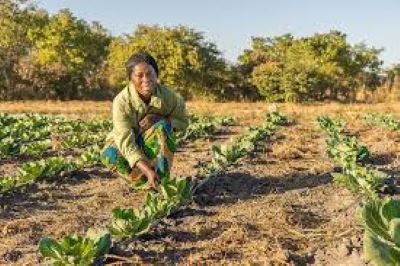ASHENEWS reports that the Director General of the National Information Technology Development Agency (NITDA), Kashifu Inuwa has explained that Nigeria can enhance farmers’ productivity using the adoption of technology.
The NITDA DG stated this while delivering a keynote speech in Abuja at the Launching of the Survey on the Digitisation of Supply in Small-Scale Nigerian Farms Projects.
The project was organised by AGROVESTO, an Agritech startup and a beneficiary of the iHatch Incubation Programme Cohort 2) which also partnered with NITDA, Office for Nigeria Digital Innovation (ONDI), Japan International Cooperation Agency (JICA) as well as the Federal Ministry of Agriculture and Food Security (FMAFS).
According to Inuwa, while smallholder farmers represent a significant portion of Nigeria’s farming population, they still face significant challenges, especially in the areas of value chain optimisation.
Inuwa, who was represented by the Director of Digital Economy Department, Engr. Salisu Kaka said that supply chain optimisation will ensure that small-scale farmers can meet the increasing consumer demands, enhance food quality and safety, and promote and utilise sustainable practices.
“This can be achieved through the adoption of technologies such as Artificial Intelligence (AI), which can handle time-demanding tasks using machine learning and predictive modelling; the Internet of Things (IoT), which can monitor crops and generate real-time data to inform automation and best practices; and blockchain, which can provide end-to-end traceability in supply chains with sharable data, building consumer trust and even making it easier to isolate and manage disease outbreaks in crops,” Inuwa said.
To support the federal government’s commitment to enhance agricultural productivity in the country, Inuwa noted that the NITDA has been actively supporting the growth of Nigeria’s agricultural sector.
“One key initiative is the National Adopted Village for Smart Agriculture (NAVSA) which has engaged 965 farmers in integrating technology into agriculture.
“Our Strategic Roadmap and Action Plan, 2024 – 2027 (SRAP 2.0) also highlights our focus on promoting technology in agriculture to boost food security, increase the sector’s GDP contribution, drive economic diversification, and create jobs, aligning with the priorities of President Bola Ahmed Tinubu’s Renewed Hope Agenda,” he added.
On his part, the Co-founder/CEO of AGROVESTO, Bayo Adewoye said that the project has been designed to address the challenges faced by farmers in the country.
He listed the expected outcomes to include improved farmer income by connecting farmers to wider markets through digital tools as well as increasing their bargaining power and sales, thereby boosting their incomes.
He added that digitising agricultural value chains can reduce post-harvest losses and also improve the flow of goods, benefiting farmers and markets.
This initiative which aims to enhance digital literacy, would likewise empower farmers with digital skills to enable them to leverage technology to access information and expand their market reach.
He said that the initiative will see to the design and integration of a tailored digital platform for market access.


